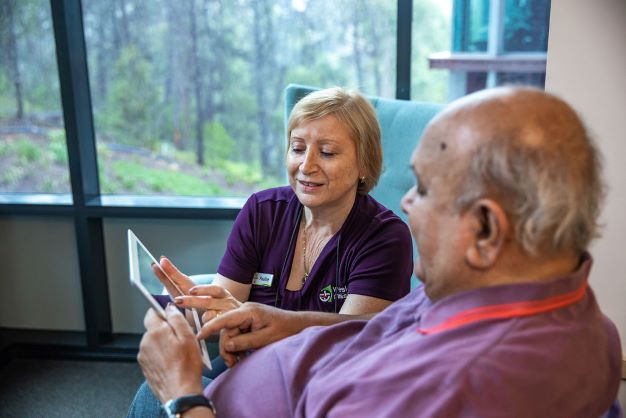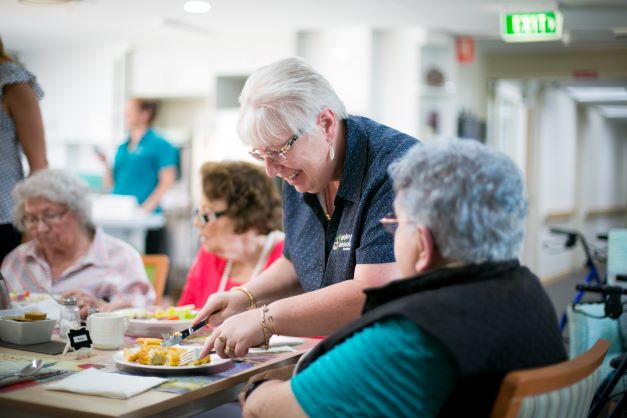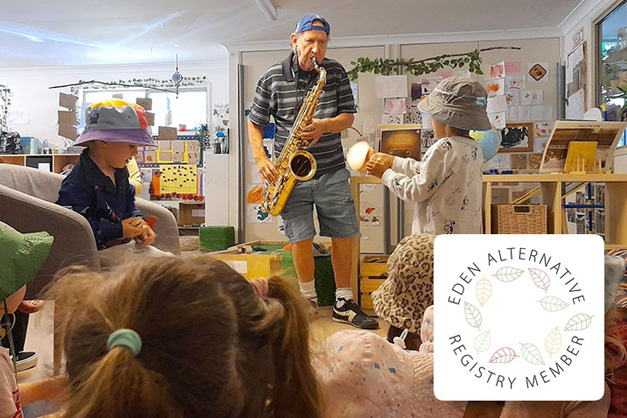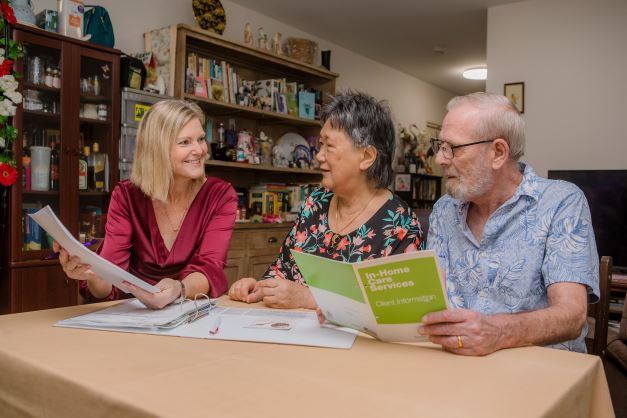The ACAT assessment facilitates access to government-funded aged care services, such as Home Care Packages, residential aged care homes, short-term accommodation and respite care. This comprehensive evaluation process helps tailor personalized care plans best suited to individuals' unique circumstances.
Call now 1800 448 448. Our warm and friendly Aged Care Specialists are waiting to chat with you. Don't wait, connect today!

The ACAT assessment is a comprehensive evaluation conducted by the Australian government organisation 'My Aged Care' to determine an individual's eligibility for government-funded aged care services. It aims to ensure that individuals receive the most appropriate and tailored care based on their assessed needs.
To check your eligibility for an assessment, you (or your carer) can:
If eligible for subsidised aged care, My Aged Care website will prompt you to apply online for an assessment.
To apply for an assessment:
With your permission, a family member, friend, or carer can complete your application online or talk on your behalf. If you have previously registered with My Aged Care, you cannot apply for an assessment online and will need to call My Aged Care.
For RAS assessment, you’re usually told at the end of your assessment if approved for the CHSP funding.
For ACAT assessments, you will receive a copy of the assessment outcome and recommendations within a few weeks after the assessment takes place. The assessors provide a written report that outlines:
Once deemed eligible through an assessment:
If you need services while you wait, contact us for help (online via the form below or call 1800 448 448). There are many ways to fund services while you wait for your Home Care Package.
You will need to undergo an income test if you are eligible for:
The income and assets assessment calculates the level of government subsidy you may be eligible for and the maximum fees you can be asked to pay towards the cost of your aged care services.
Once your assessment is complete, Services Australia will send you a Pre-commencement Letter that tells you if you need to pay a means tested care fee and/or accommodation costs. Take this letter with you to any discussions that you have with potential aged care homes to help you understand the cost of living in their home.
Note: You can get your means assessed at any time, even before you enter care. However, the outcome is only valid for 3 months. If you don’t enter care during this time, you will need to complete another assessment.
Whether you decide to choose Wesley Mission Queensland as your provider or if you prefer to explore approved services through My Aged Care website, make sure you:
Remember, you will only have 56 days to choose a service provider once you are assigned a package. So don't wait, call us today on 1800 448 448 to discuss your needs and explore our services.
Invoices and service reviews when you choose Wesley Mission Queensland as your provider

Be part of a warm community that supports your physical, spiritual and emotional wellbeing. We will get to know you, and over time, build important bonds of trust.


Our team is here to guide you and your family. If your needs increase, your Care Coordinator will talk to you about your options.
Understanding how to prepare for a face-to-face ACAT assessment can help streamline the process and ensure you get the most out of this crucial process.
Compile a list of relevant information and documents you will need to take with you:
What aspects of your life would you like to improve? Maybe you wish to maintain or improve your independence, remain in your home for as long as possible, address particular health concerns, address difficulties with daily living activities and mobility at home and in the community, strengthen social connections or seek new activities within your community.
Involving close friends, family and carers in the aged care planning process can be beneficial. They may offer valuable insights to facilitate informed decisions about your individual care needs, as well as emotional support and encouragement.
During the assessment, don't hesitate to ask questions or seek clarification if something is unclear. The assessor is there to assist you.
Contact your assessor and they can make arrangements for you. You can also book a sign language and Auslan interpreter via our Sign Language and Interpreting Services.
My Aged Care is a government agency designed to assist individuals and their families in navigating the aged care system in Australia. The ACAT (Aged Care Assessment Team) are specialised teams of healthcare professionals that conduct assessments as part of the My Aged Care process. These assessments determine an individual's eligibility and care needs for government-funded aged care services provided through My Aged Care.
The ACAT assessment is conducted by a team of qualified health professionals. The team may include nurses, social workers, occupational therapists, physiotherapists, or other relevant specialists. They possess the expertise and training to assess aged care needs and determine eligibility for aged care services.
An ACAT assessor might ask you about:
Yes, you will receive a copy of the ACAT assessment outcome and recommendations. The assessors provide a written report that outlines the assessment findings, your eligibility for aged care services and the level of care recommended. This report helps you understand the outcome of the assessment and guides your access to appropriate aged care services.
Once deemed eligible through an ACAT assessment, you will be placed on the government’s national waiting list until you are assigned a package. To find information on your place on the national waitlist and your expected wait time:
For most people, the expected wait times for approved Home Care Package levels are as follows:
If you have been referred to an assessment by My Aged Care, you will be visited by either the Aged Care Assessment Team (ACAT) or the Regional Assessment Service (RAS). Both assessments determine eligibility for government-funded aged care services.
The RAS assessment primarily focuses on entry-level care services and eligibility for lower-level home care packages, while the ACAT assessment covers a broader range of aged care services, including residential care and all levels of home care packages. The specific assessment required depends on the level of care and support an individual needs based on their unique circumstances.
Need quick Aged Care answers?
Call 1800 448 448 and our friendly Aged Care Specialists will clarify any questions you have.
The RAS assessment is for individuals seeking entry-level support services via the Commonwealth Home Support Programme (CHSP). It addresses the needs of individuals who can remain living independently at home.
The RAS assessment is conducted over the phone or in-person by a trained assessor from the Regional Assessment Service. It focuses on gathering information about an individual's functional abilities, daily living tasks, and entry-level care and support requirements.
The ACAT assessment is for individuals seeking aged care services, such as residential aged care (nursing homes), Home Care Packages (HCP) (Level 1, 2, 3 and 4), transition care, and respite care.
It addresses the needs of individuals requiring more intensive care, medical supervision, or specialised support.
The ACAT assessment involves a more comprehensive evaluation by a team of health professionals, including nurses, social workers, and occupational therapists. The assessment covers a broader range of aspects, including medical conditions, personal care needs, mobility, and other relevant factors to determine the appropriate level of aged care services.
It may take place in the individual's home or at a designated assessment centre.
If an individual initially undergoes a RAS assessment and their care needs change or become more complex over time, they may be referred for an ACAT assessment to reassess their eligibility for a Home Care Package.
Experienced aged care at home and in our facilities. Compassionate, respectful, and cherished moments for your loved ones.
Contact us on 1800 448 448 or complete this form.

Leave a commentOrder by
Newest on top Oldest on top